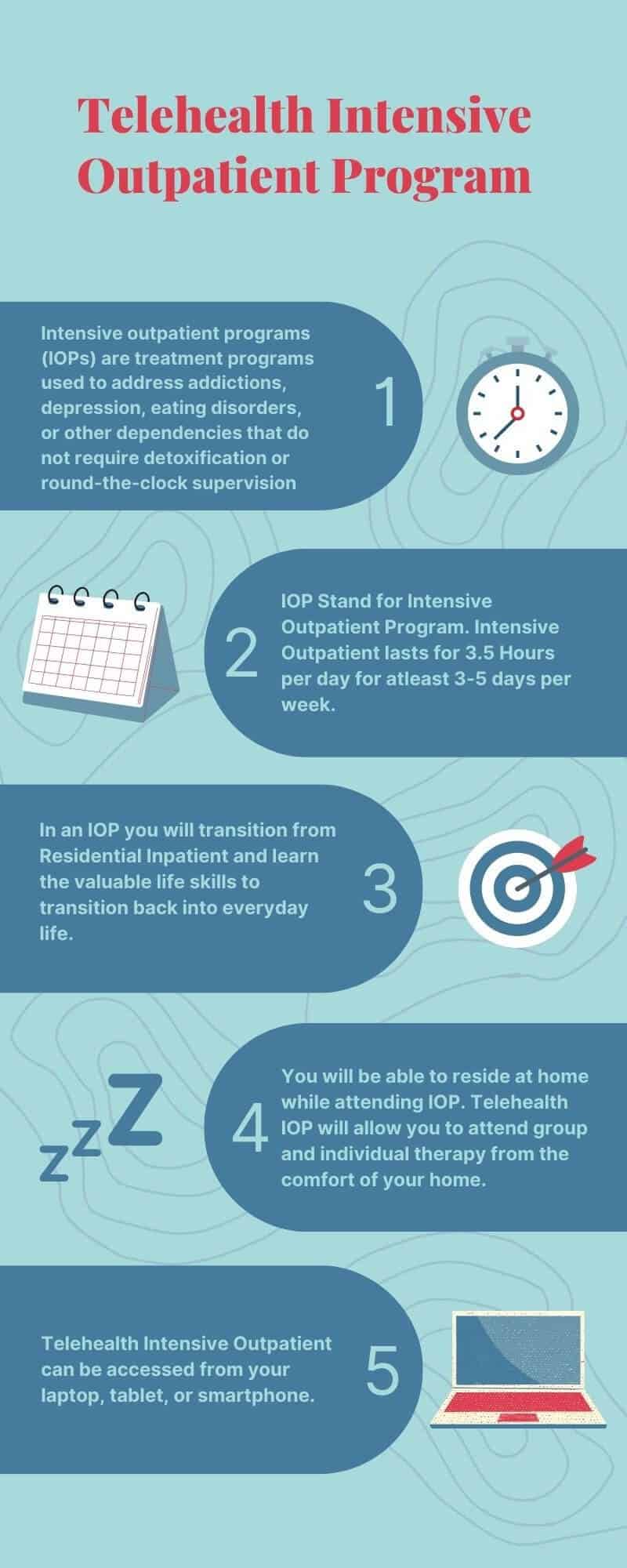Inexpensive and Efficient Intensive Outpatient Program (IOP) Solutions Near You.
Wiki Article
Navigating the Complexities of Double Medical Diagnosis Treatment Within an Intensive Outpatient Program Establishing
In the world of mental health and wellness and addiction treatment, the intersection of dual medical diagnosis offers a nuanced difficulty that demands a thorough and customized strategy. By discovering the complexities of dual diagnosis treatment within this intensive outpatient context, a clearer course arises towards holistic and lasting healing for those grappling with these intertwined difficulties.Double Diagnosis Introduction

Comprehending twin diagnosis is necessary as it requires a detailed and integrated strategy to treatment. By recognizing the interplay between compound usage and mental health and wellness, medical care carriers can tailor treatments to meet the one-of-a-kind needs of each individual. This all natural approach not only addresses signs yet also targets hidden variables that add to the double medical diagnosis.
Additionally, unattended twin diagnosis can result in a cycle of relapse and getting worse mental health and wellness signs. By identifying the intricacy of twin medical diagnosis and providing specialized care, medical care professionals can support individuals in achieving long-term recovery and improved mental well-being.
Tailored Treatment Plans
Identifying the intricate interaction in between material usage problems and psychological wellness problems, the growth of tailored treatment plans is paramount in addressing the complexities of dual medical diagnosis in psychological wellness therapy. Customized therapy plans are personalized strategies that consider the one-of-a-kind demands, obstacles, and objectives of people dealing with twin medical diagnosis. These plans are designed collaboratively by a multidisciplinary group of specialists, including psychiatrists, psycho therapists, social employees, and addiction specialists, to ensure thorough and incorporated care.Tailored therapy strategies normally include a combination of treatments, drugs, and behavior interventions that target both the material usage disorder and the psychological health and wellness condition simultaneously. These strategies may include cognitive-behavioral treatment, dialectical actions therapy, medication-assisted therapy, private counseling, team therapy, and household therapy, to name a few evidence-based treatments. By customizing therapy approaches to specific situations, tailored plans can address the source of dual medical diagnosis, promote lasting healing, and boost overall top quality of life for individuals battling with co-occurring disorders.
Integrated Treatment Method
An integrated care strategy in double diagnosis therapy incorporates medical, mental, and social treatments to attend to the complicated demands of people with co-occurring compound usage problems and psychological health and wellness problems. This strategy acknowledges that dealing with one click to read more aspect of a dual medical diagnosis without resolving the other can cause inadequate outcomes. By integrating medical treatments such as drug management for mental health and wellness conditions with emotional therapies like cognitive-behavioral therapy for compound usage problems, people obtain extensive care that targets all facets of their double medical diagnosis.In addition, the social aspect of integrated care includes attending to ecological variables that might add to the development or perpetuation important use and mental health issues. This can include household dynamics, housing instability, or lack of social support. By incorporating social interventions like family therapy, employment support, and neighborhood sources, the treatment ends up being much more holistic and tailored to the person's specific needs. Overall, an incorporated care strategy in twin medical diagnosis therapy within an intensive outpatient program setting aims to provide thorough, efficient, and customized like individuals encountering co-occurring problems.
Obstacles in IOP Setting
In the context of twin medical diagnosis treatment within an extensive outpatient program, navigating the intricacies of co-occurring compound use problems and mental wellness conditions provides considerable difficulties. Among the primary obstacles in the IOP setting is the control of treatment between mental health and wellness professionals and chemical abuse professionals to make certain a thorough therapy approach. This requires efficient interaction, collaboration, and a deep understanding of just how these conditions communicate and affect each other.
Furthermore, resolving stigma and resistance to therapy within the IOP setup can hinder progression. Some individuals may be hesitant to reveal their dual diagnosis or might really feel ashamed, impeding their involvement in the therapeutic process. Getting over these barriers necessitates a helpful and non-judgmental environment that fosters depend on and visibility.

Collaborative Expert Initiatives
Reliable twin diagnosis treatment in an extensive outpatient program requires seamless partnership among mental health and wellness specialists and chemical abuse professionals to ensure a comprehensive and integrated method to care (Intensive Outpatient Program (IOP)). our website This partnership is important to attend to the intricate interaction between mental health disorders and substance misuse, as both facets require to be treated concurrently for effective end results. Psychological health and wellness experts bring experience in detecting and dealing with mental health and wellness conditions, while compound abuse specialists have specialized understanding in dealing with dependency problems. By functioning together, these see it here professionals can create personalized therapy plans that accommodate the special demands of each individual, taking into consideration both their psychological health and wellness and chemical abuse obstacles.Collective initiatives additionally expand to normal interaction and information sharing among group members to ensure a cohesive treatment method. Eventually, an unified front of experts functioning with each other improves the efficiency of double medical diagnosis therapy within an extensive outpatient program.
Verdict
In verdict, reliable twin medical diagnosis therapy within an extensive outpatient program setup needs tailored therapy strategies and an incorporated treatment strategy. Obstacles might emerge in this setup, however collective efforts among experts can assist navigate these intricacies. By dealing with the unique requirements of individuals with co-occurring mental health and compound use problems, IOP programs can offer extensive and holistic like sustain recovery and total wellness.Report this wiki page